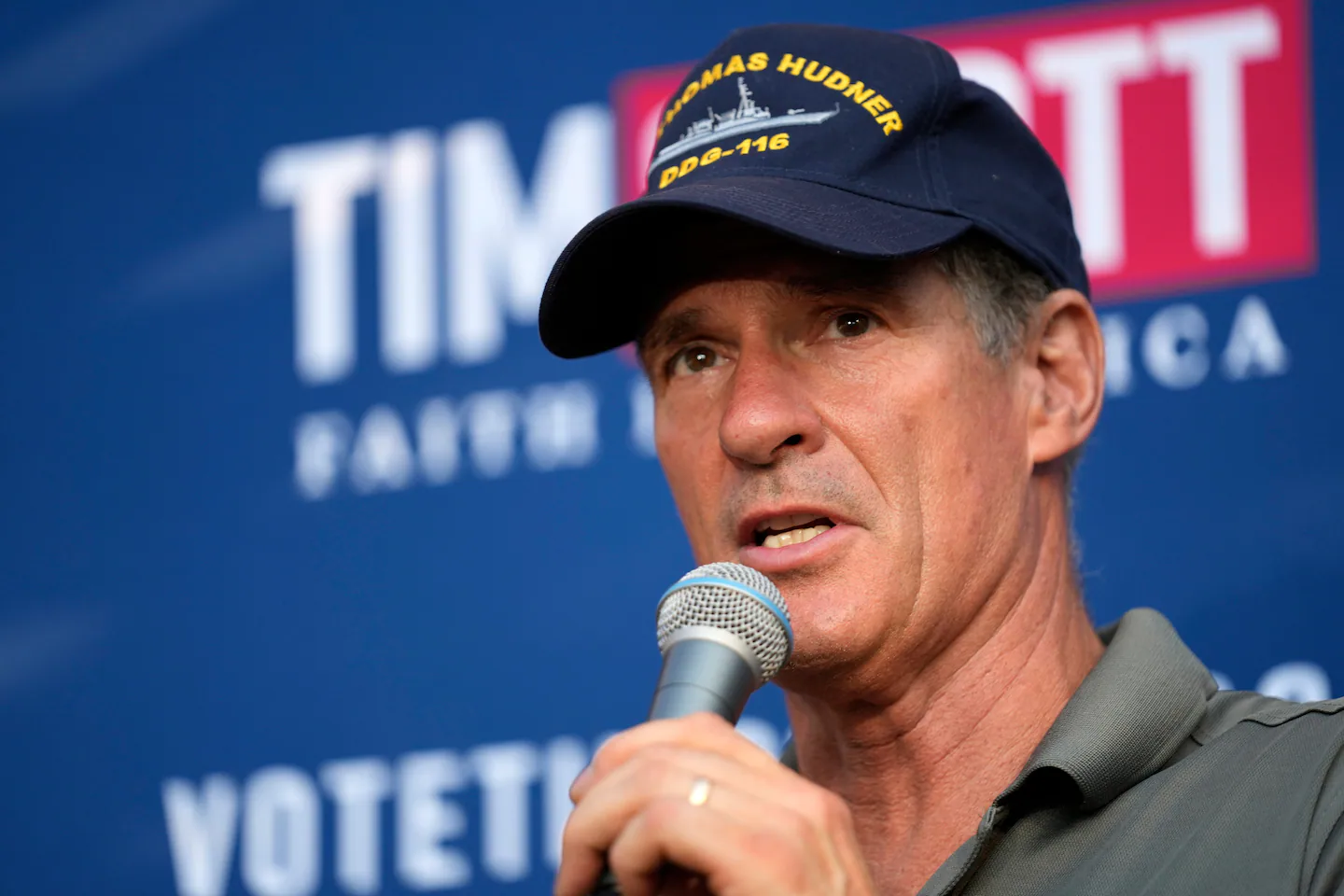Copyright The Boston Globe

In 2014, Republican senators in Washington looked at the upcoming race in New Hampshire and came to a blunt conclusion: The race leaned Democratic. The current Republican field wasn’t getting it done, even though it included a former senator who had once held that very seat. So they went out and recruited another former senator, one with better name recognition and polling that suggested he could at least make it competitive. That person was Scott Brown. Today, a decade later, the same script has been flipped on Brown. Now he is the former senator lagging well behind the Democratic front-runner, and Republicans in Washington have once again gone looking for a rescue candidate. This time, they found one in another familiar face: John E. Sununu. When Sununu entered the race on Wednesday, he scrambled the Republican primary, but interestingly not because of Donald Trump. Both Brown and Sununu occupy complicated space in the modern GOP: neither beloved by Trump’s base nor defined by open opposition to him. Brown once served as Trump’s ambassador to New Zealand, but later blamed him for Jan. 6, a fact that is often mentioned in MAGAville. When his wife ran for Congress, Trump didn’t endorse her. Notably, he hasn’t endorsed Brown this time, even when the GOP field was weaker. Sununu never backed Trump in any presidential primary, endorsed Nikki Haley last year, and yet now has the support of Trump’s New Hampshire campaign chair. That uneasy détente with Trump means this primary won’t be about proving MAGA-worthiness, so much as machinery: name recognition, fund-raising, and institutional muscle. And on all three counts, Sununu undercuts Brown. Advertisement In New Hampshire politics, the Sununu brand is generational. Between his father’s time as governor and White House chief of staff, his brother Chris’s four terms as governor, and his own service in both the House and Senate, the family name is nearly synonymous with the Republican establishment. Brown’s brand, by contrast, has faded since his Tea Party moment in Massachusetts 15 years ago. In 2014, it was Brown who had the Senate leadership behind him. Kentucky’s Mitch McConnell, John Cornyn of Texas, and others recruited him to move north and run, and promised to help him raise the money to compete. Now, it’s Sununu getting that treatment. Senate Republican leader John Thune encouraged him to enter the race, and Sununu quickly lined up support from South Carolina Senator Tim Scott, who chairs the National Republican Senatorial Committee, and Wyoming’s John Barrasso, the conference chair. That early institutional alignment all but guarantees donors and consultants will rally around him as the party’s preferred candidate. Advertisement Fund-raising tells the same story. Brown has consistently ranked in the mid- to lower tier among Republican candidates in competitive races, while Sununu’s entry has already triggered a wave of donor interest from Washington PACs and business-aligned contributors eager for a credible challenger to the likely Democratic nominee, Representative Chris Pappas. And for all of Brown’s claims about electability, polling suggests Sununu actually performs better in a head-to-head matchup with Pappas. That last point may prove decisive. Republicans believe that with Senator Jeanne Shaheen retiring, New Hampshire presents one of their best pickup opportunities in 2026, but only with the right nominee. Party strategists have quietly concluded that Brown’s ceiling has lowered, and that Sununu, with his technocratic image and moderate tone, can expand the map. The contrast is striking: Brown, the imported populist who once promised to shake up Washington, now faces the insider’s challenge from a home-grown establishment Republican whose family built the state party machine. Both men are veterans of earlier GOP movements — Brown from the antiestablishment Tea Party surge, Sununu from the pre-Trump fiscal-conservative era — and both are trying to find relevance in a party that’s still shaped by Trump but no longer entirely defined by him. For Pappas and Democrats, Sununu’s candidacy complicates what had looked like a straightforward defense. A bruising Republican primary could still give them an advantage, but a unified GOP behind Sununu would instantly make the race one of the most competitive in the country. National Democrats are already preparing to frame Sununu as a “corporate throwback” while painting Brown as yesterday’s news. Ten years ago, Washington Republicans bet that bringing in Brown would give them a chance to flip a blue-leaning seat. Now they’re betting that replacing him with John Sununu might finally finish the job. Advertisement James Pindell is a Globe political reporter who reports and analyzes American politics, especially in New England.



